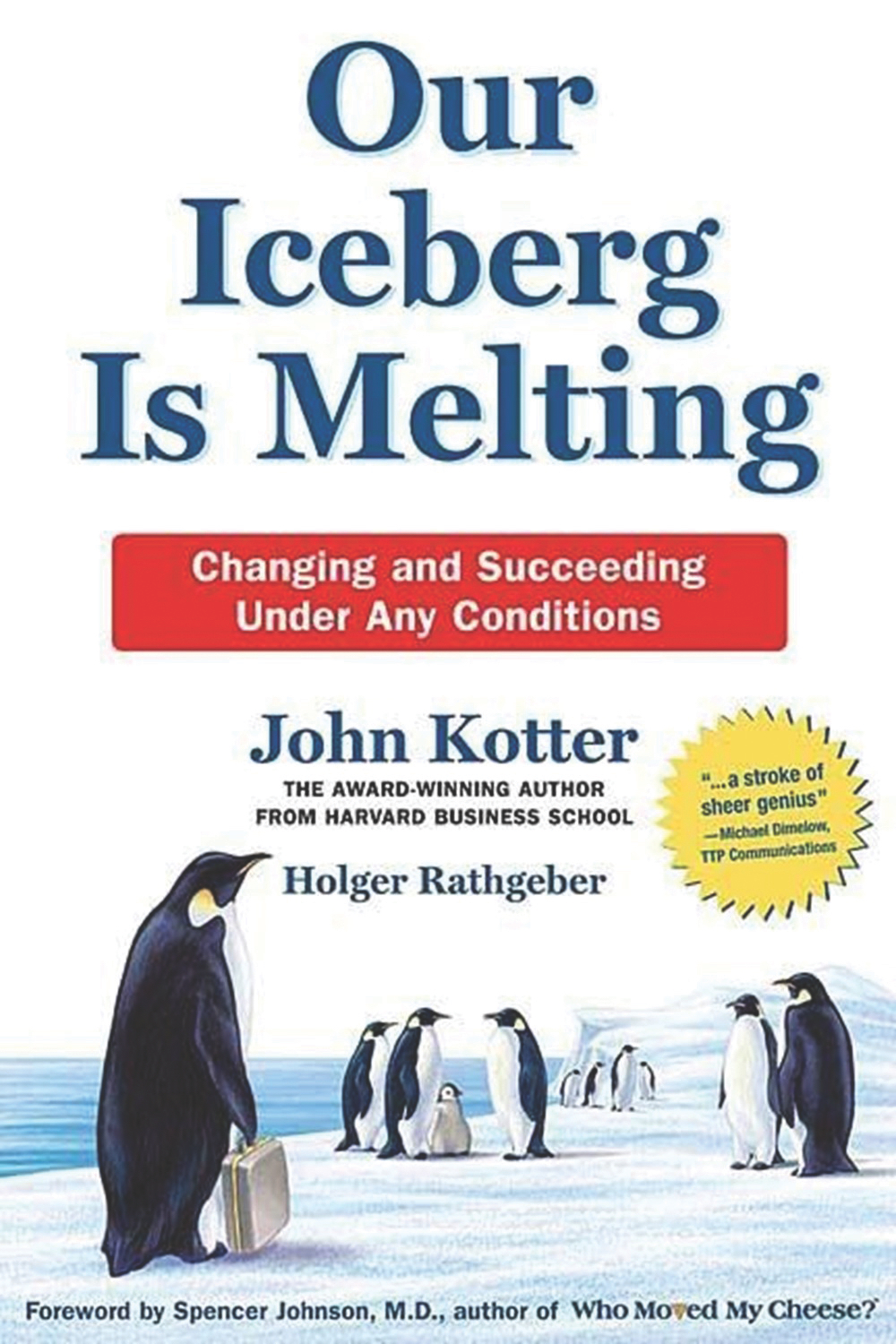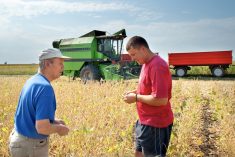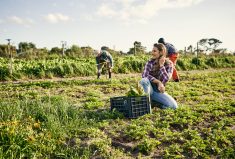What is more urgent than a melting iceberg? Not much, say scientists. No matter where we live or what work we do, all of us have got to expect a devastating series of cataclysmic ripple effects as long as the world’s ice continues to melt.
But the penguins have a plan. At least, the penguins do in John Kotter and Holger Rathgeber’s book Our Iceberg Is Melting: Changing and Succeeding Under Any Conditions.
But enough already. Country Guide is for farmers. And, yes, penguins’ plans might have a certain intrinsic level of interest. But what on earth have they got to do with farming?
Read Also

The big squeeze: How to be fair to siblings during farm succession
Managing sibling business relationships on family farms.
Well, it turns out there are several lessons your farm or any ag business can glean from the penguins’ experiences about leadership, change management and problem solving by learning how to turn threats into opportunities.
Otherwise, how could famed Harvard emeritus professor of business John Kotter be so eager to write about them?
Organized as a fable, this book is a quick and easy read, full of insights on how to handle change and foster effective leadership. It offers advice on how to spot opportunities, handle naysayers, pick a team, and rally that team around a vision and strategy.
It also highlights the importance of engaging everyone’s perspectives, both the young and the old, to create buy-in of the vision.
Here’s an example. Alice is one of 10 leadership council members in the penguin colony, and like all good leaders, she’s open-minded enough to consider the concerns of fellow community member Fred.
Fred, it turns out, has made careful and long observations, and he has concluded that the colony’s home is melting. Alice asks Fred to “take (her) to the place that… most clearly shows the problem.”
She quickly realizes that she and Fred can’t solve the problem n their own; she’ll need to take the difficult but essential step of pulling together a team to guide the required change. Critically, she also knows the leadership council will have to “be prepared to help others see and fell the problem… And be prepared that some birds won’t want to see any problem.”
Starting to sound like home?
Additionally, Louis, the head penguin, is “reluctant to do anything that would show disrespect for birds who had worked hard for years to help and serve the colony (e.g. the outgoing generation).” And he knows that while the younger birds “had little credibility in the colony, had no known leadership skills, (and) were very inexperienced,” they are the experts on ice (much like the way today’s younger generation might be quite inexperienced in some regard but have vast expertise in technology and understanding young people).
The penguins quickly realize their current strategy to stay on their iceberg makes increasingly little sense. At first, this leads them to feel overwhelmed and unprepared to cope with the consequences.
Ultimately, though, they solve their problem and turn it into an opportunity by harnessing the power of “the excitement and the learning that happens… when (we) come together with others to make something extraordinary happen” — which, as the authors point out, is “what we find among the most successful and innovative organizations today.”
Those of us working in the agriculture industry often feel the presence of uncertainty lurking over our shoulders when we consider the future of the industry or our businesses.
The speed of change and the number of daily challenges seem to increase relentlessly. Efforts to mitigate change or find a way forward can feel burdensome given the number of factors that need to be considered: the organizational business components, business partners and employees, the varying perspectives of those involved in decision-making.
The key to success is hidden in the tale: “Handle the challenge of change well, and you can prosper greatly. Handle it poorly, and you put yourself and others at risk.”
Kotter’s message is clear. Don’t make the mistake of thinking your iceberg will never melt. Be prepared for the day when it might.
Hmmm… too early to be thinking of Christmas presents?
















